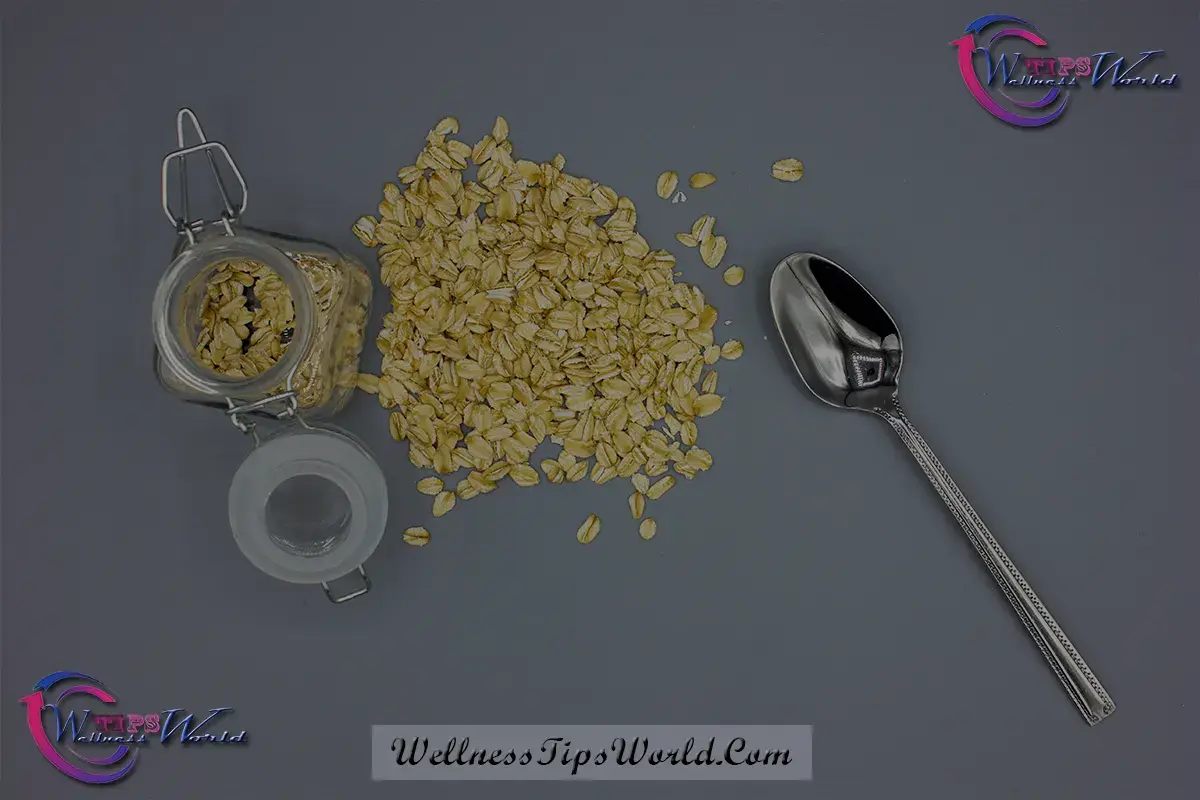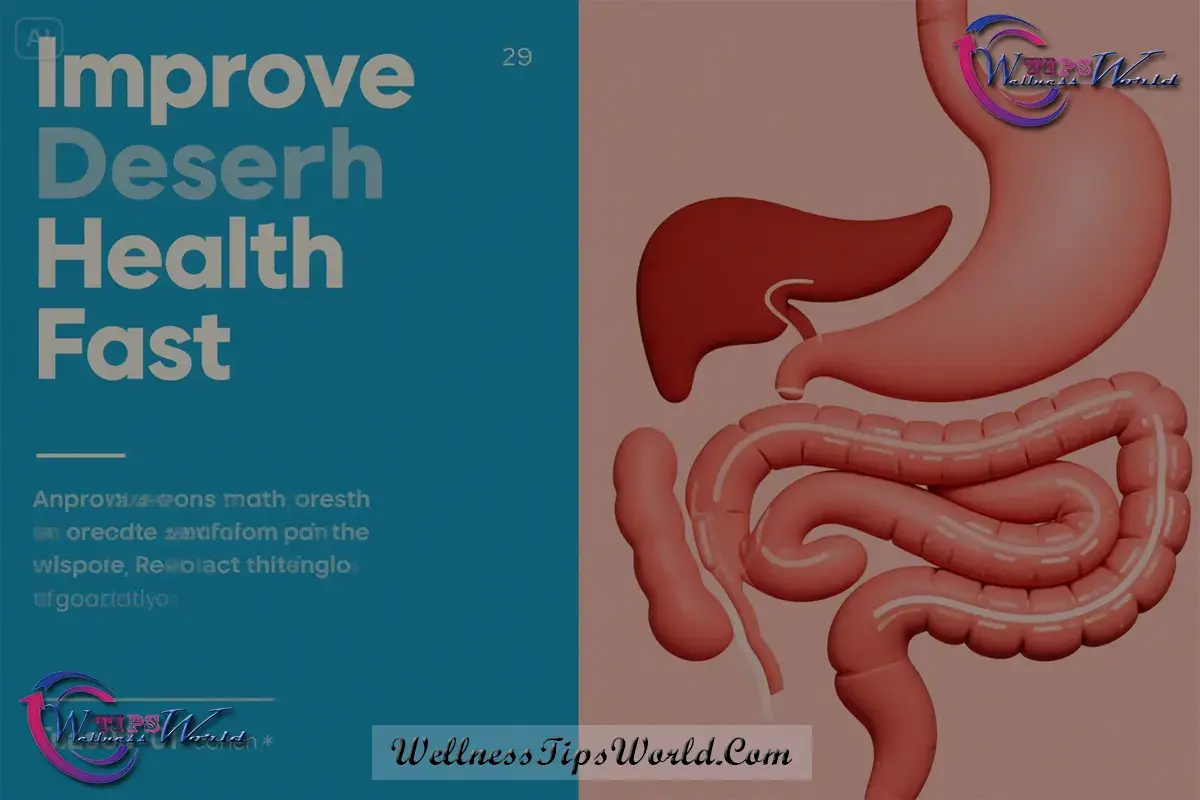5 Easy Habits That Boost Your Digestive Health Instantly
-
112
- 17 Mar, 2025

Maintaining optimal digestive health is essential for overall wellness and vitality. The digestive system is responsible for breaking down food, absorbing nutrients, and eliminating waste, so when it's not functioning well, it can impact everything from your energy levels to your mood. Many people struggle with digestive issues like bloating, indigestion, and constipation, but the good news is that improving digestive health doesn’t have to be complicated. By adopting a few simple habits into your daily routine, you can boost your digestive health instantly. In this article, we will explore five easy, actionable habits that can help enhance your digestion and overall gut health.
Why Digestive Health Matters
Before we dive into the habits, it’s important to understand why digestive health is essential. Your digestive system is responsible for converting food into nutrients, which your body then uses for energy, growth, and cell repair. A healthy gut helps prevent issues like heartburn, bloating, constipation, and even more serious conditions like IBS (Irritable Bowel Syndrome) and celiac disease. Maintaining good digestion ensures that your body absorbs nutrients effectively and that waste is eliminated without issue.
If you're struggling with digestive discomfort or simply want to enhance your gut health, this article will provide you with some practical steps to get started. Let’s look at five habits that can improve your digestive health instantly.
1. Stay Hydrated Throughout the Day
Hydration is one of the easiest yet most effective ways to support your digestive system. Drinking enough water helps keep things moving smoothly in your intestines, preventing constipation and promoting the breakdown of food. Water also supports the production of digestive enzymes and stomach acids, both of which are essential for proper digestion.
How to Stay Hydrated
- Drink at least 8 cups (64 ounces) of water a day, but more may be needed if you’re active.
- Start your day with a glass of warm water to jump-start your digestive system.
- Include water-rich foods in your diet like cucumbers, oranges, and watermelon.
If you find it difficult to drink plain water, try infusing it with lemon, mint, or cucumber to make it more enjoyable. Remember, proper hydration can help prevent discomfort like bloating and indigestion.
2. Incorporate More Fiber into Your Diet
Fiber is vital for supporting proper digestion and maintaining digestive health. There are two types of fiber: soluble fiber and insoluble fiber, both of which are important for keeping the digestive system in balance. Soluble fiber absorbs water and aids in controlling blood sugar, while insoluble fiber increases stool bulk, facilitating smoother bowel movements.
Fiber-Rich Foods to Include
- Fruits like apples, berries, and pears
- Vegetables such as broccoli, spinach, and carrots
- Whole grains such as quinoa, oats, and brown rice
- Legumes like beans, lentils, and chickpeas
- Nuts and seeds, including chia and flaxseeds, are excellent sources of nutrition.
Benefits of Fiber for Digestion
- Supports healthy digestion and helps prevent constipation.
- Reduces bloating by aiding in the efficient breakdown of food.
- Improves gut microbiota (the beneficial bacteria in your intestines) which can reduce inflammation and enhance nutrient absorption.
If you’re not used to consuming a lot of fiber, increase your intake gradually to prevent bloating or discomfort. Aim for 25-30 grams of fiber per day to maintain optimal digestive health.
3. Practice Mindful Eating
How you eat can be just as significant as what you eat. Mindful eating is a practice that involves being fully present and paying attention to the sensations of eating, from the taste and texture of your food to how it makes you feel. Eating too quickly or while distracted can lead to overeating, poor digestion, and discomfort like indigestion and bloating.
Tips for Mindful Eating
- Slow down and chew your food thoroughly—aim for 20-30 chews per bite.
- Avoid multitasking while eating (like watching TV or working).
- Focus on the flavors, smells, and textures of your food, and appreciate each bite.
- Listen to your body and stop eating when you're full, not when your plate is empty.
Mindful eating helps reduce stress on your digestive system and improves the body's ability to break down food. It also allows you to tune in to your body's signals, which can help prevent overeating and support healthy digestion.
4. Include Probiotics and Prebiotics in Your Diet
Your gut contains trillions of microorganisms that play a crucial role in digestion, immunity, and overall health. Among these microorganisms are probiotics, the beneficial bacteria that support digestive health. To maintain a healthy gut microbiome, it's important to include both probiotics and prebiotics in your diet.
Probiotics
Probiotics are beneficial live microorganisms that support health when ingested. They help maintain a balanced gut microbiome and can prevent the growth of harmful bacteria. Common sources of probiotics include:
- Yogurt (with live and active cultures)
- Kefir (fermented milk drink)
- Sauerkraut, kimchi, and other fermented vegetables
- Miso and tempeh (fermented soy products)
Prebiotics
Prebiotics are a form of fiber that nourish the good bacteria in your gut, promoting their growth. You can find these in foods such as:
Bananas
- Onions, garlic, and leeks
- Asparagus and artichokes
- Oats and barley
By including both probiotics and prebiotics in your diet, you are supporting the healthy bacteria in your gut, which in turn improves your digestive health and boosts immunity.
5. Get Regular Exercise
Physical activity is another easy and effective habit to promote healthy digestion. Regular exercise helps stimulate the muscles in your gastrointestinal tract, encouraging the movement of food and waste through your system. It also helps regulate metabolism and can reduce stress, which is a common trigger for digestive issues.
Types of Exercise That Benefit Digestion
Walking: A simple, low-impact exercise that helps keep your digestive system moving.
Yoga: Certain yoga poses, such as the seated twist or child’s pose, can help stimulate digestion and relieve bloating.
Aerobic exercise: Activities like cycling, swimming, and running increase blood flow to your digestive organs, promoting better digestion.
Strive for a minimum of 30 minutes of moderate activity, five days a week. Exercise doesn’t just boost digestive health; it also improves overall well-being by reducing stress, improving sleep, and increasing energy.
A Healthier Digestive System Starts Today
Maintaining a healthy digestive system is a key component of overall wellness. By adopting just a few of these easy, everyday habits—staying hydrated, increasing fiber intake, eating mindfully, incorporating probiotics and prebiotics, and exercising regularly—you can boost your digestive health instantly and start feeling better.
Remember, small changes can make a significant difference in your digestion and overall vitality. By committing to these habits, you’ll support your digestive system and improve your overall health, allowing you to live a more comfortable and energized life.
So why wait? Start integrating these habits into your daily routine today and feel the benefits of improved digestion right away!










